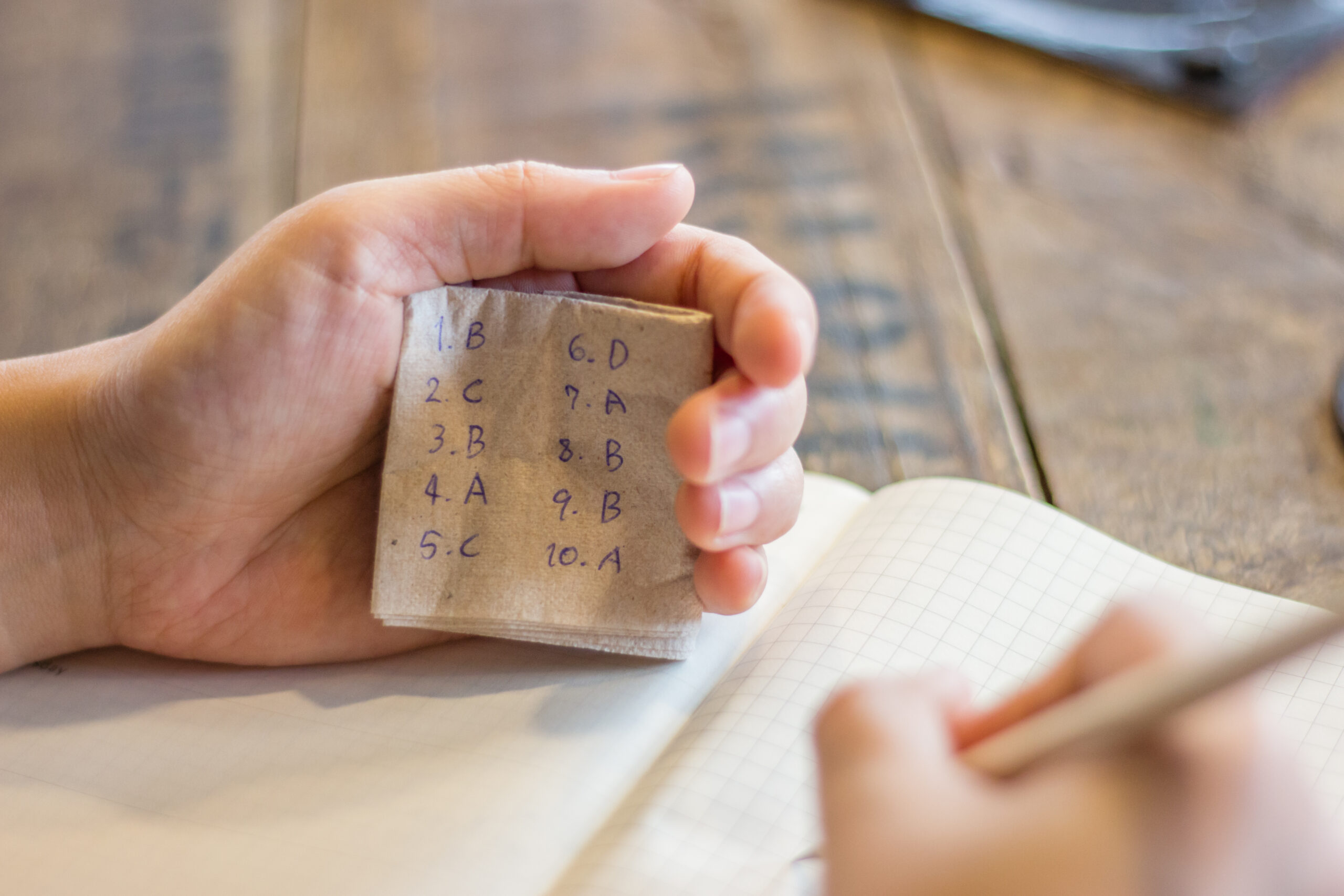A further 64 students were given an official warning because of irregularities, although fraud could not be proven.
These figures come from the Education & Student Affairs online exam team. Many written exams have been held online since the coronavirus crisis. In these exams, students are supervised using ‘online proctoring’. The vendor of the surveillance software made 28,500 video recordings of exams over the past months (periods 5 and 6 plus resits).
1500 of these exams were identified as ‘suspicious’. Most were trivial instances: stopping a few minutes late, a photo on the wall, a piece of paper on the desk, or mum entering the room with a cup of tea. But there were also students who had a suspiciously long visit to the toilet, who made a phone call during the exam or who failed to provide a proper visual scan of the room where they were taking the exam.
Crib sheet
The WUR examiners and examining boards reviewed these suspect cases. This revealed 10 cases where exam fraud could be proven: students had illegally used a smartphone, sent text messages, opened websites or kept them open, or used a second laptop or crib sheet.
Ten cases of fraud is slightly more than normal, says a representative of the examining boards. The number of warnings was also higher than with written exams in an exam room.

 Photo: Shutterstock
Photo: Shutterstock 

